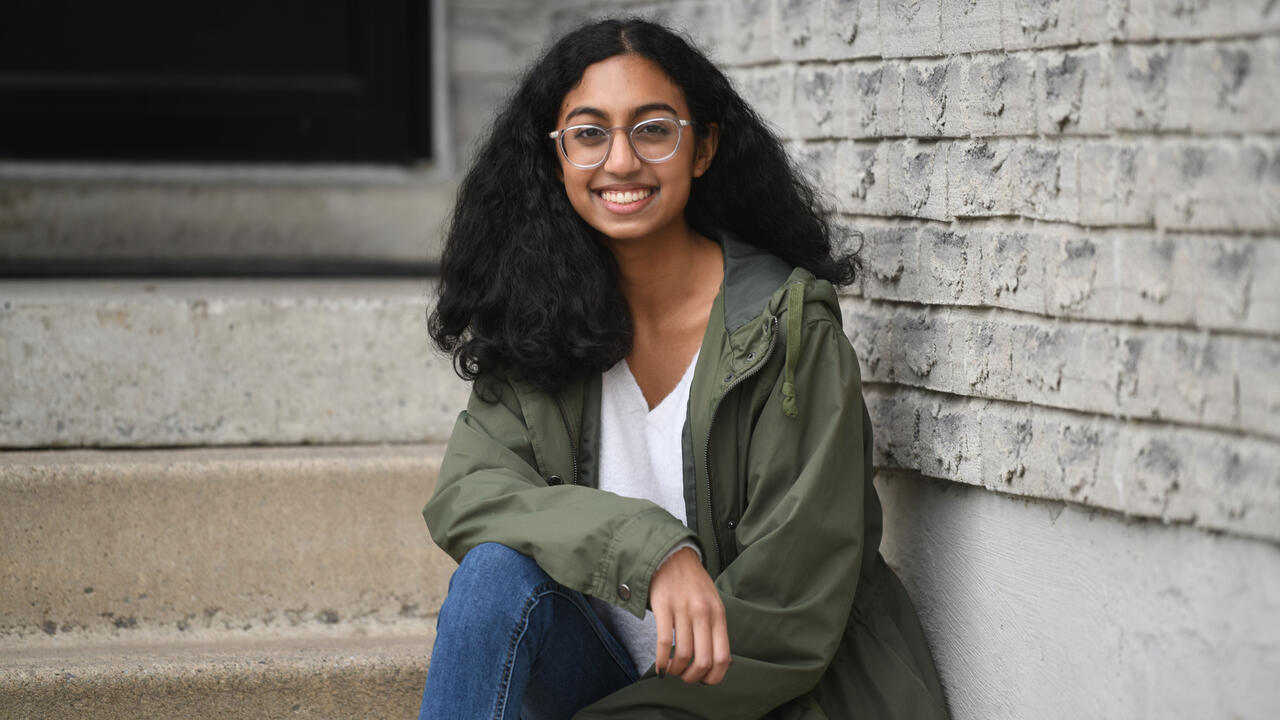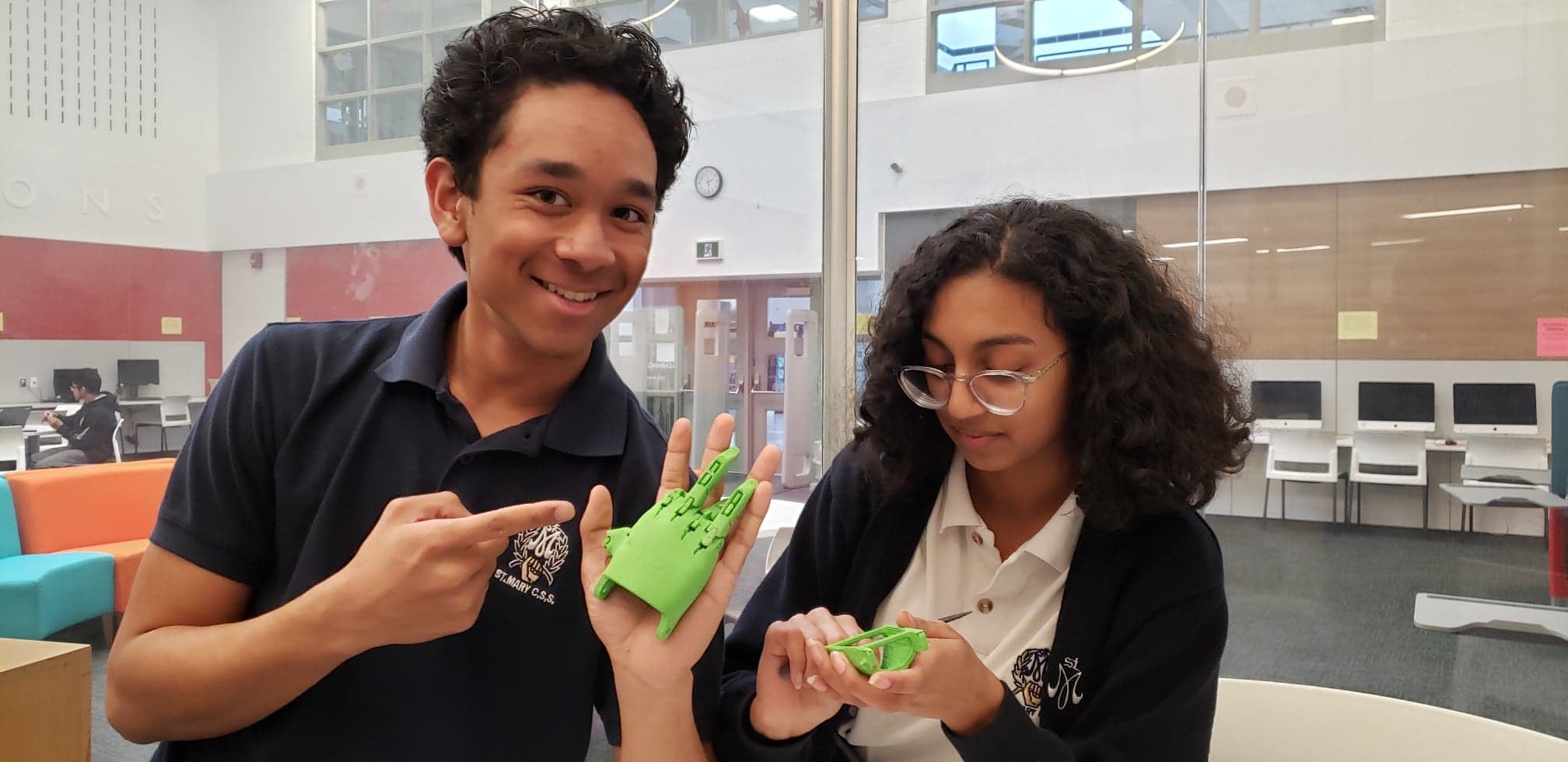
Advocating for a better world
New engineering student is passionate about climate change, inclusivity and all things STEM

New engineering student is passionate about climate change, inclusivity and all things STEM
By Carol Truemner Faculty of EngineeringA social activist who started Waterloo’s software engineering program this semester is passionate about seeing what she can accomplish as a new student.
Charlene Rocha brings with her a wide range of experience from leading climate change events and strikes at Queen’s Park to heading up a Canadian high school chapter of an initiative to 3D print prosthetic limbs and advocating for women in STEM.
Her impressive accomplishments were recognized with the 2021 Meridian Commitment to Communities Sean Jackson Scholarship, which recognizes her energy, creativity and entrepreneurial skills to solve or address a vital community problem.
In high school, Rocha was president of several clubs but wanted to take on bigger leadership roles and become involved in meaningful social causes.
Scrolling through social media three years ago, she and her sister read about a Fridays for Future strike taking place at Queen’s Park.
The youth-led movement began in August 2018 when 15-year-old Greta Thunberg and other young activists sat in front of the Swedish parliament every school day for three weeks to protest the lack of action on the climate crisis.
After travelling with her sister by bus from their home in Pickering, Ontario to downtown Toronto, Rocha was so inspired by the protest that she made an impromptu speech.
“It was very out of the box for me because at that time it wasn’t part of my character,” she says. “The rest of my family was really stunned when I came home and told them about the speech.”
Shortly after visiting Queen’s Park where she was interviewed by the media, she became part of the team that organized Fridays for Future.
“From there, things really took off,” says Rocha who successfully lobbied the City of Pickering to pass a climate emergency declaration last year.
During the past three years, she has given motivational speeches, including a TED talk, led workshops, and starred in a YTV original documentary about the climate crisis. Rocha has also been active in a number of environmental campaigns and Indigenous rights and racial equity initiatives.
Identifying as a member of the 2SLGBTQ+ community, she led her Catholic high school's gender and sexuality alliance group for four years and was pleased when the school allowed the pride flag to be flown for the first time in June of this year.
“It meant a lot for students to see that support from our school,” Rocha says. “It shows that the school is making the effort to reach out and to help make it a more inclusive space.”
Two years ago, she began heading up the Toronto chapter of e-NABLE, the first student-led 3D printed prosthetic group in Canada. As team president, she instructed the 30+ members on how to assemble and provide prosthetic devices to individuals with little access to medical care. The team’s goal this year is to create prosthetic hands for 30 children.

Alex Loo, left, and Charlene Rocha work on 3D printed prosthetic hands as members of their high school chapter of e-NABLE. Both Loo and Rocha are now Waterloo Engineering students.
As one of the only young women in her high school computer science and robotics classes, Rocha was worried she’d experience a similar sense of gender isolation if she joined e-NABLE.
“I had to remind myself that the group was something I was really interested in,” she says. “So, I got involved and from there it was absolutely amazing. I found out I love 3D printing and I love learning about new software and how to put things together. It was a great experience.”
When applying for admission to Waterloo’s software engineering program, Rocha was concerned she would again be one of the only women in her classes. Instead, she is thrilled women make up 40 per cent of her cohort, a significant increase from about 20 per cent last year.
“That jump in itself is absolutely amazing,” she says.
Along with promoting the STEM fields of study to young women, Rocha also wants to continue exploring 3D printing and its vast possibilities.
“I’m also looking forward to meeting new people and exploring new ideas with them,” she says. “I want to collaborate with others and create something amazing.”

Read more
Here are the people and events behind some of this year’s most compelling Waterloo stories

Read more
Meet five exceptional Waterloo graduate students crossing the convocation stage as Class of 2025 valedictorians

Read more
Meet the 14 exceptional students representing Waterloo’s newest grads
The University of Waterloo acknowledges that much of our work takes place on the traditional territory of the Neutral, Anishinaabeg, and Haudenosaunee peoples. Our main campus is situated on the Haldimand Tract, the land granted to the Six Nations that includes six miles on each side of the Grand River. Our active work toward reconciliation takes place across our campuses through research, learning, teaching, and community building, and is co-ordinated within the Office of Indigenous Relations.